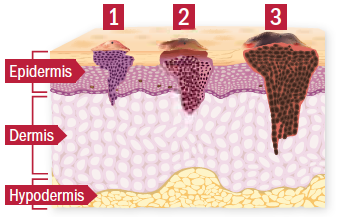
Avocado nutrition: Health benefits and easy recipes

Swimming lessons save lives: What parents should know

Preventing and treating iliotibial (IT) band syndrome: Tips for pain-free movement

Wildfires: How to cope when smoke affects air quality and health

What can magnesium do for you and how much do you need?

Dry socket: Preventing and treating a painful condition that can occur after tooth extraction

What happens during sleep �� and how to improve it

How is metastatic prostate cancer detected and treated in men over 70?

Could biofeedback help your migraines?

What is autism spectrum disorder?
Skin and Hair Archive
Articles
What kind of sun protection is best for babies, pregnant women, and breastfeeding women?
Ask the doctors
Q. Should pregnant or breastfeeding women and their children use sunscreen?
A. The American Academy of Dermatology recommends that people avoid applying sunscreen to the skin of babies younger than 6 months of age, and instead shield them from the sun, keeping them in the shade as much as possible. It's also a good idea to protect them from the sun using clothing, hats, and sunglasses.
Sunscreen in a pill?
Research we're watching
The FDA is warning consumers not to buy in to the idea that a pill can protect your skin from the sun.
In a statement issued May 22, FDA officials said they've found companies selling pills that are labeled as dietary supplements and that claim to protect skin from the sun.
Save your skin from cancer
Rates of the two most common skin cancers have more than doubled over the past decade. Here's how to protect yourself.
When it comes to skin cancer, there's good news and bad news. First, the bad news. A report published in the June 2017 Mayo Clinic Proceedings found that cases of basal cell carcinoma (BCC) and squamous cell carcinoma (SCC) skin cancers have risen 263% and 145%, respectively, over the past decade.
The good news? BCC and SCC are rarely life-threatening and they're usually easy to treat if they're caught early. Plus, there are simple ways to prevent them.
Getting rid of the itch of eczema
Ask the doctors
��Image: © jacoblund/Getty Images
Q. I was recently diagnosed with eczema. Is this condition treatable without the use of steroids? I'd like to avoid using them if I can.
A. Eczema, also known as atopic dermatitis, is a chronic inflammatory skin condition. Some people with eczema have mild dryness or itchiness, while others experience more severe symptoms, such a scaly rash or skin that cracks and oozes. Eczema is more common in childhood, affecting up to 20% of children, but it also affects adults. The good news is it's not contagious, and in some cases, it's possible to manage the condition without using steroids.
Skin potions that really work
Dermatologists tell us what ingredients to look for in a skin serum to treat a variety of skin conditions.
��Image: © zaretskaya/Getty Images
As you get older, you might start to look a little more intently at the rows of lotions and potions at the drugstore and the beauty counter. You may wonder which ones can really help your skin look more like it used to �� minus the wrinkles, dark spots, and other signs of aging.
One word that's showing up on labels a lot these days is "serum" �� typically on products that promise to brighten and smooth your skin and help roll back the clock. These little glass bottles contain a host of impressive-sounding ingredients such as hyaluronic acid, niacinamide, and L-ascorbic acid. But do they really work?
Finding the right serum for your skin
The right combination of components is essential to get the results you hope to see.
��Image: © JackF/Getty Images
Serums can be used to treat a wide range of conditions, including brown spots, wrinkles, and dry or acne-prone skin. Below are the ingredients that Harvard dermatologists Dr. Abigail Waldman and Dr. Maryam M. Asgari recommend for various skin conditions.
Problem: Dry or sagging skin
If your skin is dry, tight, and flaky, look for serums that contain vitamin E, niacinamide, and glycolic acid. Also look for ceramides, which are fatty molecules that help hold the skin together and keep moisture from escaping. Other good options are serums that contain hyaluronic acid, or those with collagen peptides, epidermal growth factors, or stem cells.

Avocado nutrition: Health benefits and easy recipes

Swimming lessons save lives: What parents should know

Preventing and treating iliotibial (IT) band syndrome: Tips for pain-free movement

Wildfires: How to cope when smoke affects air quality and health

What can magnesium do for you and how much do you need?

Dry socket: Preventing and treating a painful condition that can occur after tooth extraction

What happens during sleep �� and how to improve it

How is metastatic prostate cancer detected and treated in men over 70?

Could biofeedback help your migraines?

What is autism spectrum disorder?
Free Healthbeat Signup
Get the latest in health news delivered to your inbox!
Sign Up











